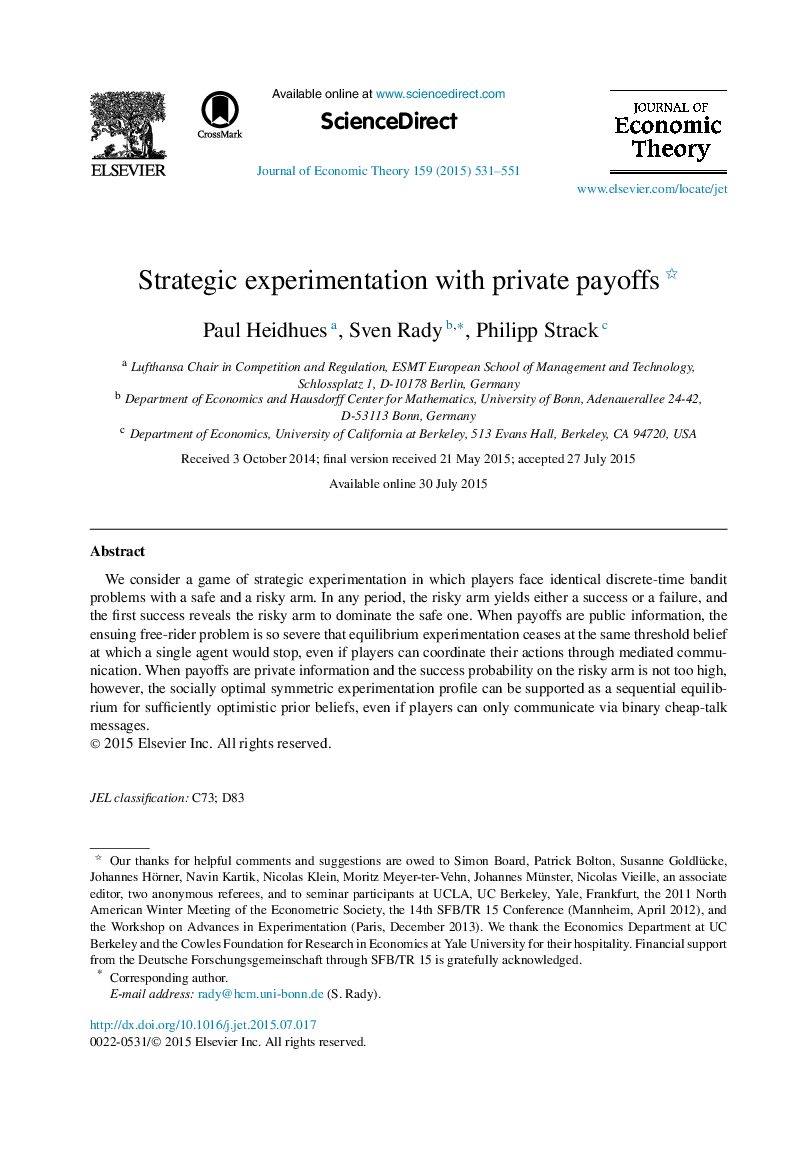| Article ID | Journal | Published Year | Pages | File Type |
|---|---|---|---|---|
| 956851 | Journal of Economic Theory | 2015 | 21 Pages |
We consider a game of strategic experimentation in which players face identical discrete-time bandit problems with a safe and a risky arm. In any period, the risky arm yields either a success or a failure, and the first success reveals the risky arm to dominate the safe one. When payoffs are public information, the ensuing free-rider problem is so severe that equilibrium experimentation ceases at the same threshold belief at which a single agent would stop, even if players can coordinate their actions through mediated communication. When payoffs are private information and the success probability on the risky arm is not too high, however, the socially optimal symmetric experimentation profile can be supported as a sequential equilibrium for sufficiently optimistic prior beliefs, even if players can only communicate via binary cheap-talk messages.
